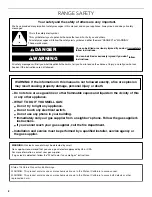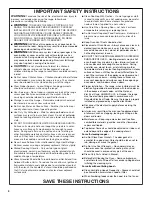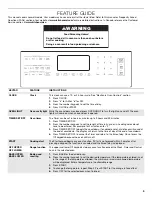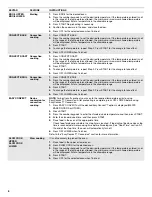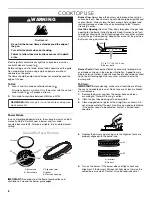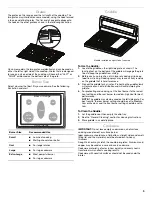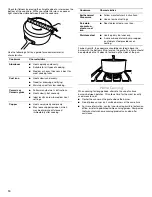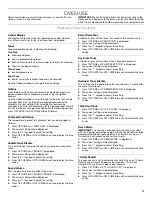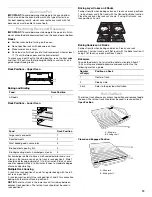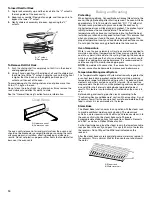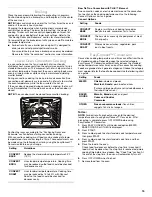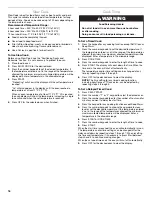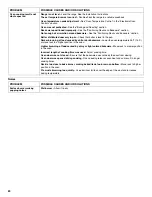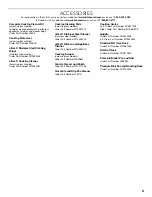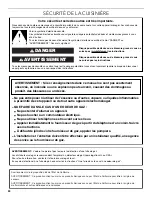
10
Check for flatness by placing the straight edge of a ruler across the
bottom of the cookware. While you rotate the ruler, no space or
light should be visible between it and the cookware.
Use the following chart as a guide for cookware material
characteristics.
For best results, the cookware should be centered above the
burner with the bottom sitting level on the grate. The flame should
be adjusted so that it does not extend up the sides of the pan.
Home Canning
When canning for long periods, alternate the use of surface
burners between batches. This allows time for the most recently
used areas to cool.
■
Center the canner on the grate above the burner.
■
Do not place canner on 2 surface burners at the same time.
■
For more information, contact your local agricultural extension
office, or refer to published home canning guides. Companies
that manufacture home canning products can also offer
assistance.
Cookware
Characteristics
Aluminum
■
Heats quickly and evenly.
■
Suitable for all types of cooking.
■
Medium or heavy thickness is best for
most cooking tasks.
Cast iron
■
Heats slowly and evenly.
■
Good for browning and frying.
■
Maintains heat for slow cooking.
Ceramic or
Ceramic glass
■
Follow manufacturer’s instructions.
■
Heats slowly, but unevenly.
■
Ideal results on low to medium heat
settings.
Copper
■
Heats very quickly and evenly.
■
May leave copper residues, which
may be diminished if cleaned
immediately after cooking.
1
2
3
4
5
6
7
8
9
1 0
1 1
1 2
1 3
1 4
1 5
1 6
1 7
1 8
1 9
2 0
1
2
3
4
5
6
7
Cookware
Characteristics
Earthenware/
Stoneware
■
Follow manufacturer’s instructions.
■
Use on low heat settings.
Porcelain
enamel-on-
steel or cast
iron
■
See stainless steel or cast iron.
Stainless steel
■
Heats quickly, but unevenly.
■
A core or base of aluminum or copper
on stainless steel provides even
heating.


